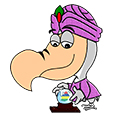Education system in Mauritius

Education has always been an important aspect of the Mauritian society ever since its independence in 1968. It was seen as the key to success for this small, remote island to move by. The education system evolved over time from a private one to a publicly funded one where both boys and girls were given equal access to education. While the PSSA (Private Secondary Schools Association) is responsible for the privately owned schools, the government is responsible for all other state schools. The hierarchy of the educational system is from pre-primary, primary (CPE - Certificate of Primary Education), lower secondary (Cambridge School Certificate - SC), Upper secondary (Cambridge Higher School Certificate - HSC) and tertiary education.
Primary Education
As of 2002, the ranking system at the CPE level has been abolished by the Ministry of Education so as to alleviate the pressure off the students at the primary level; the new system includes the allocation of schools to students based on their school choices on a regional basis. Children get to prepare themselves during the two years of standard 5 and 6 to sit for the CPE exams. Pre vocational education is offered to students who have failed the CPE twice ever since it has become mandatory that education is compulsory up to the age of 16.
Secondary Education
Secondary education consists of 7 years of schooling. At Form 3, a choice of subjects is made for the SC exams and at Form 5 it is repeated again once the SC results are out for the HSC exams. Physical education is highly encouraged at this stage to keep the students fit and healthy. It has been noted that girls work better than boys both at the SC and HSC exams though in the past most girls were excluded from education. There is fierce competition nevertheless in these examinations in the name of the star schools’ prestige especially at HSC level for laureateship. A pilot project for a national examination at Form 3 level is currently being tested at some selected schools.
Tertiary Education
The tertiary sector comprises of 61 institutions both private and public which are overseen by the Tertiary Education Commission (TEC) located in Reduit. Tertiary education revolves mainly around the University of Mauritius (UoM) which consists of five main faculties: the faculty of science, the faculty of law and management, the faculty of social sciences and humanities, the faculty of engineering and the faculty of agriculture. Other important institutions are the University of Technology (UTM), the Mahatma Gandhi Institute (MGI), the Mauritius Institute of Education (MIE) and the Mauritius College of the Air (MCA).
In an attempt to promote education for the betterment of the island, the government provides free education to all children up to tertiary level and a revised educational scheme has resulted in a greater intake of students at university level. Scholarships based on performance and social means are also offered to needy students both locally and internationally. Because of the high competition in the educational sector, private tuitions are heavily depended upon to achieve success as from early classes. Usually school teachers offer private tuitions to students either in small groups or individually at varying rates as from Rs300 to primary students up to more than Rs500 to secondary students per subject.
Distance learning has become widely popular for those students who want to do further education on a part time basis so that they can work meanwhile and gain experience in their chosen fields and this has been made possible with the adoption of the Internet.
Though the official language of Mauritius is English, most teaching media are in French with few in English and the mother tongue of Creole. Oriental language also forms part of the school curriculum so as to promote cultural diversity. The aim of the government is not only to provide equal access to education to all but to provide strong quality oriented foundations for the students to be fully armed when entering the job market.
8 Replies
Glad to hear that this article has helped you and good luck with your essay!
Interesting indeed.... Can you open up a debate on your page for the Nine Year Schooling Reform which is about to come?!
thx clever dodo it will help me greatly in my assignment but what about the special education (SEN sector)
Children who fall in the SEN category have either a disability or a learning difficulty. The problem we have in Mauritius is :
- SEN schools have limited seats
- there are few SEN schools and therefore they may not be one in the region where the special needs child lives
- parents are not aware of SEN
- parents of these children don't think education is important for them
Have a read through this document if you want to know more about SEN and what is being done.
The site is very useful for me ...Now when i will not know a question's answer Clever Dodo is here ...So i can search any information in the site...Thanks a lot Clever Dodo..
Can a private student sit for the exam before she/he reach 11 years, perhaps by the age of 9. Because I am confident on my readiness. If the edu system allows what are the steps i shall follow to participate?
Thanks in advance,
Cheers.
As for the procedures to follow, there are set days for registration of private students for the CPE exam depending on which alphabet their surname begin with. You will also need their birth certificate as well as countersigned passport-sized photos.
Similar topics for you







